
Ultimate Guide To St James's Park Footprints London Walking Tours
The pelicans of St. James's Park. The pelicans are a unique and traditional aspect of the park dating back hundreds of years, and a popular sight with visitors. First introduced to the park in 1664 as a gift from the Russian Ambassador, over 40 pelicans have since called the park home. Isla, Tiffany and Gargi, and our more recent new additions.
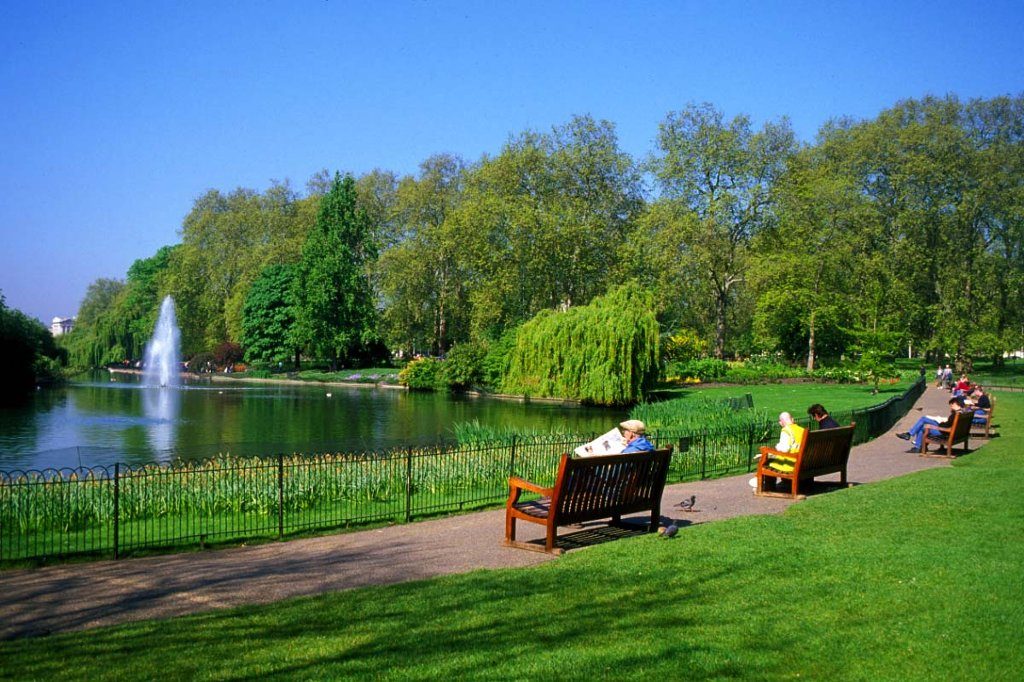
St. James's Park
St James's Park is a 23-hectare (57-acre) urban park in the City of Westminster, central London.A Royal Park, it is at the southernmost end of the St James's area, which was named after a once isolated medieval hospital dedicated to St James the Less, now the site of St James's Palace.The area was initially enclosed for a deer park near the Palace of Whitehall for King Henry VIII in the 1530's.
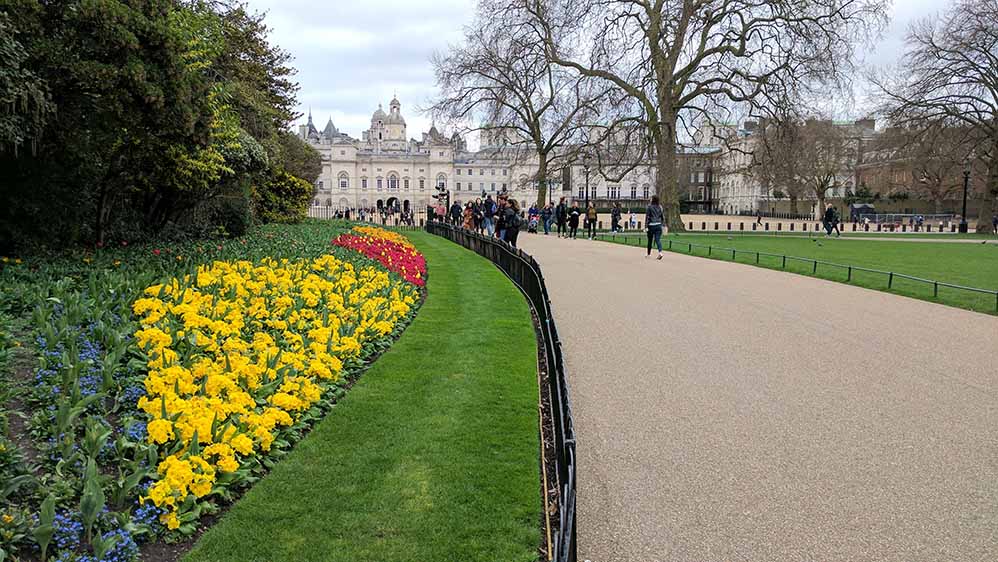
A Spring Stroll Through St James's Park, London Travel Junkie Girl
Visitor Infomation. Open to the public all year. Restaurant, Cafe, refreshment point and toilets all within park. St James's Park is the oldest Royal Park in London and is on our Royal London Walk. St James's Park is at the centre of three royal palaces; Buckingham Palace, St James's Palace and Westminster Palace.
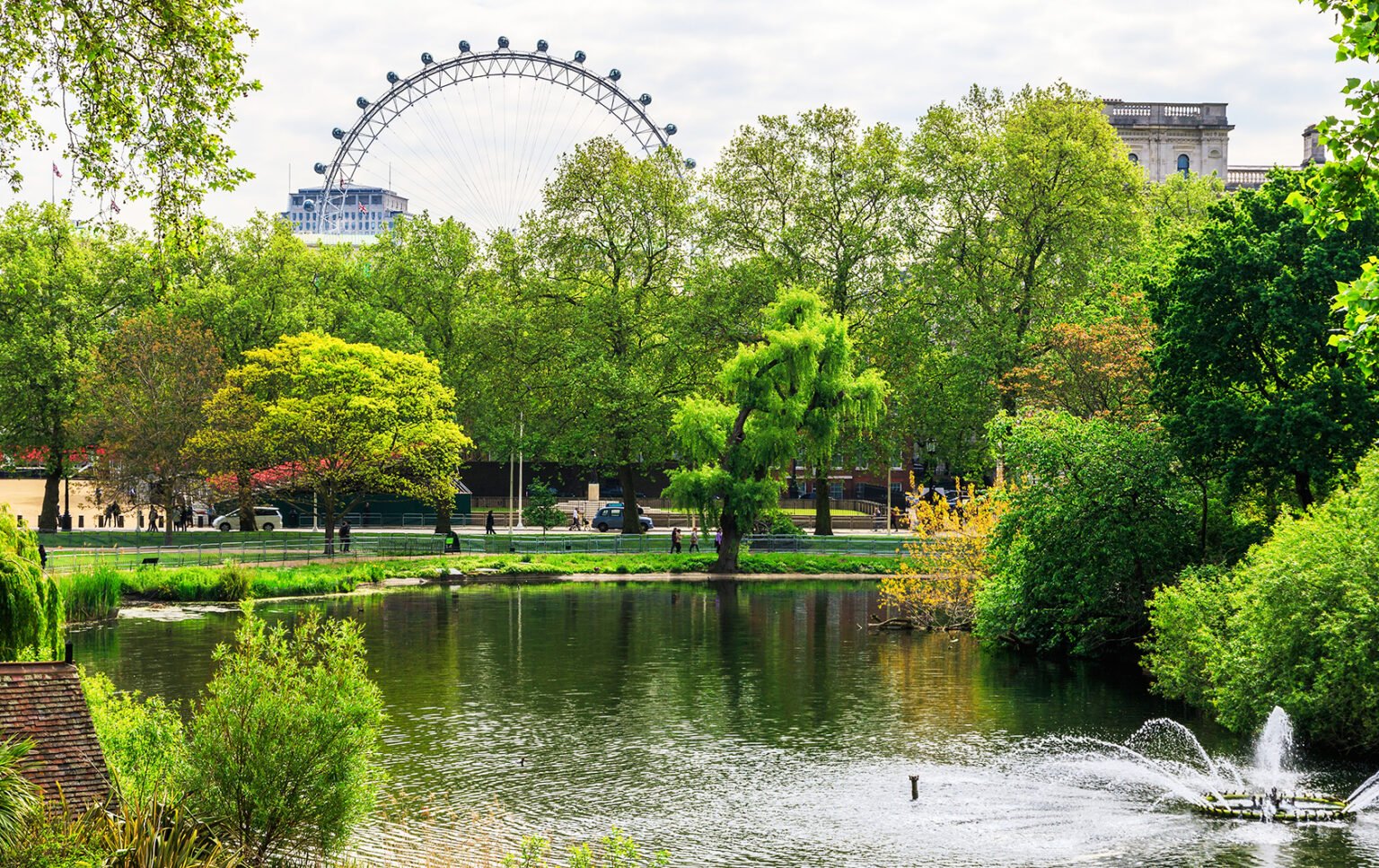
St. James’s Park A London Park with Royal Views London Perfect
ST. JAMES'S PARK ULTIMATE GUIDE. Open: Everyday: 5:00AM to 12:00AM. Time Needed: 2,5 hours. Price: Free. Whether you're a photographer or an animal lover, or even if you're just looking for a peaceful walk in London surrounded by nature, St. James's Park offers a little something for everyone. And although it may not have Hyde Park's.

12 Secrets Of St James's Park Londonist
St James's Park is perhaps the most regal of all the royal parks in London as it is surrounded by three palaces. The oldest is now known as the Houses of Parliament, officially titled the Palace of Westminster. It's namesake, St James's Palace also resides in the area and finally, the most famous of Britain's royal homes, Buckingham Palace.
The Daily Constitutional from London Walks® In and Around London... St
1. Way back in the 13th Century, the area that is now the Park was a remote, boggy, marshy and useless water meadow. Because of its remoteness, it was designated as a site of a 'women only' leper colony - on which a hospital names St. James's, was built to contain these female sufferers and keep them away from the general public. 2. In.
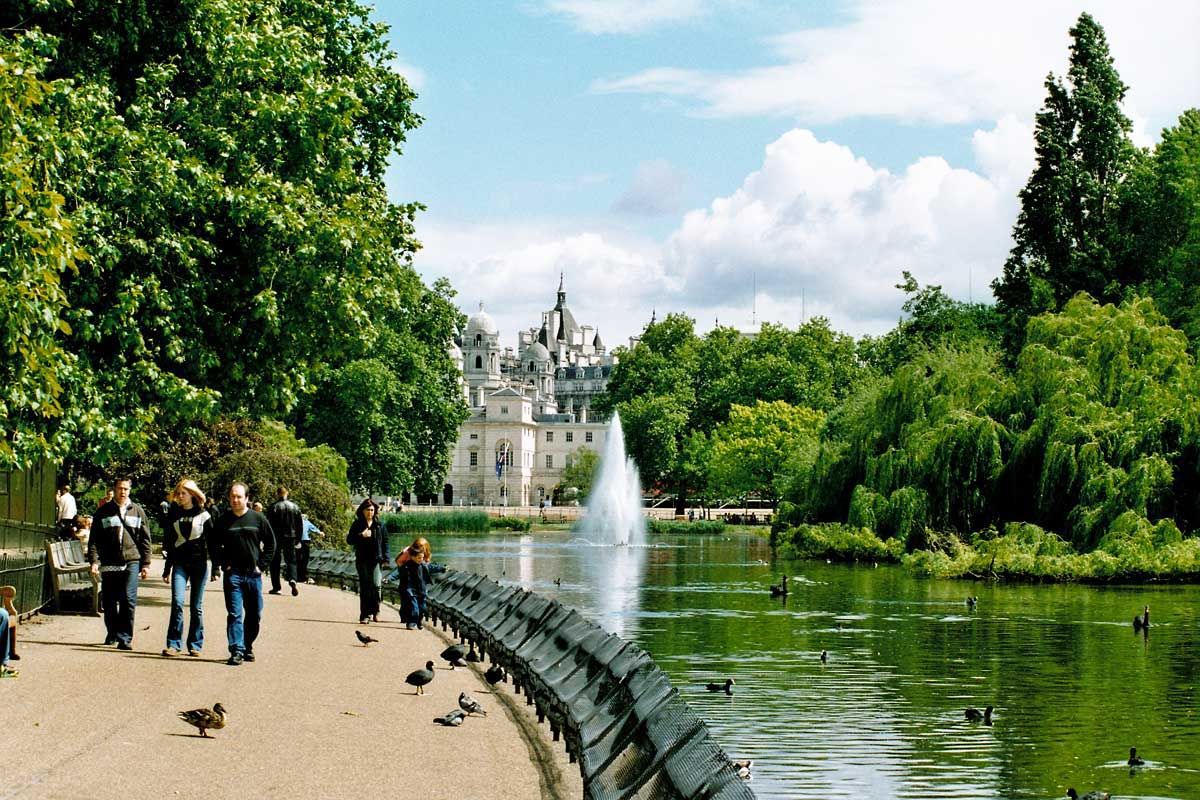
St. James Park uno de los parques más bonitos de Londres
What is St James's Park? St James's Park is a 16th-century royal park named after a leper hospital dedicated to St James the Less. St James's Park History The story of St James's Park begins in the 16th century, when King Henry VIII acquired an area of marshland bordering York Place (seized from Cardinal Wolsey), where he planned to create a deer park, a recreational space adjacent to the.

StJames´s Park, London London, London love, Tower bridge
St James's Park is the oldest Royal park in London. It is traversed by the famous Blue Bridge, which offers marvelous views of Buckingham Palace and beyond. St James's Park is surrounded by three palaces, including the Palace of Westminster, which now houses the Houses of Parliament. This large lake is noted for its waterfowl.
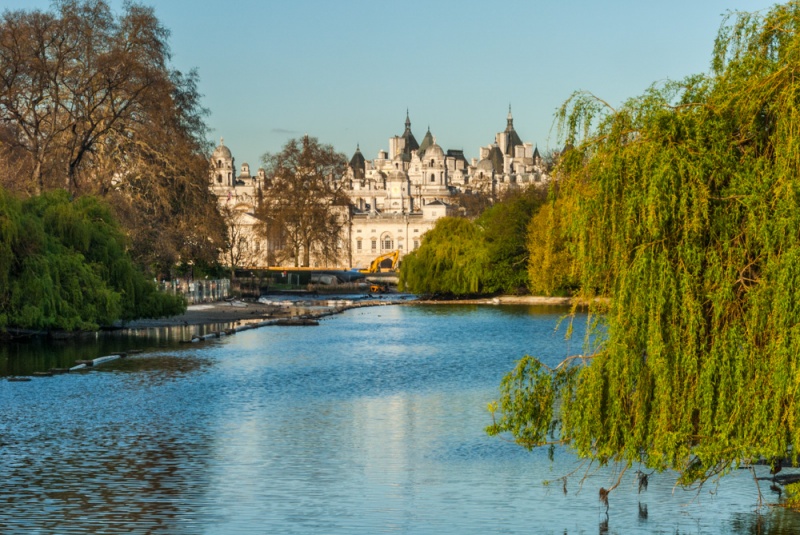
St James Park, London History & Photos
In 1531 St. James's Park was given its first function to humanity when King Henry VIII had the marshy land drained to accompany the construction of St. James's Palace - the primary royal residence for 300 years until Queen Victoria moved across the street to Buckingham Palace in 1837. Deer were raised in the park for hunting in nearby.
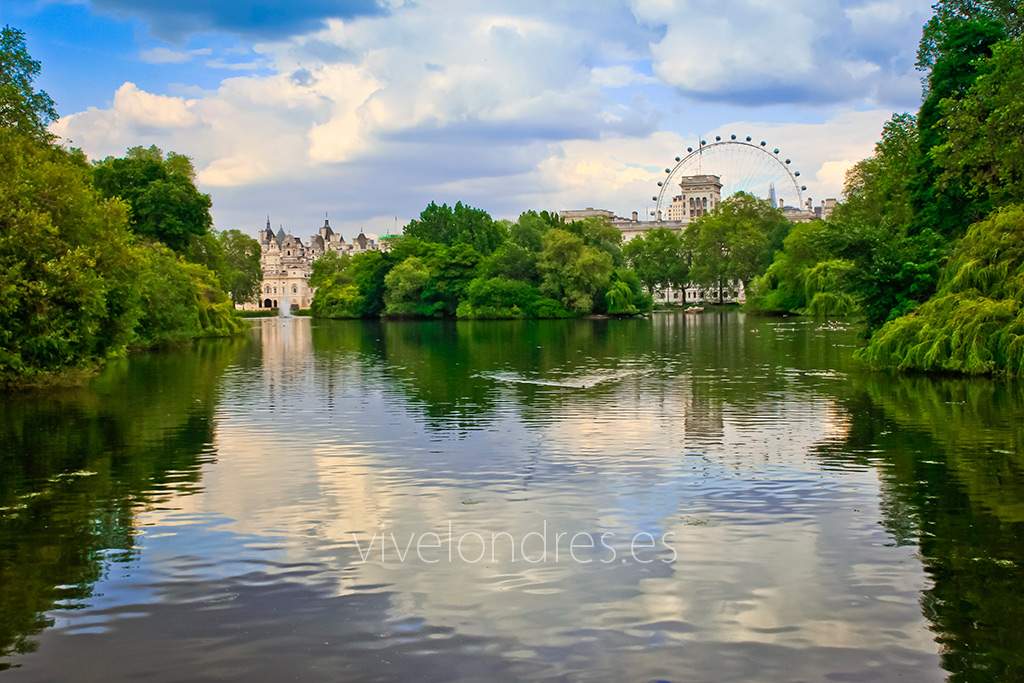
Fotos de St James's Park London Visiting
One of the top things to do at St James's Park is to take in the stunning views from the Blue Bridge. From one side of the Blue Bridge, you can enjoy an iconic view towards Horse Guards Parade and the London Eye. The view from the other side of the Blue Bridge is of Buckingham Palace. This is a wonderful spot for birdwatching too.
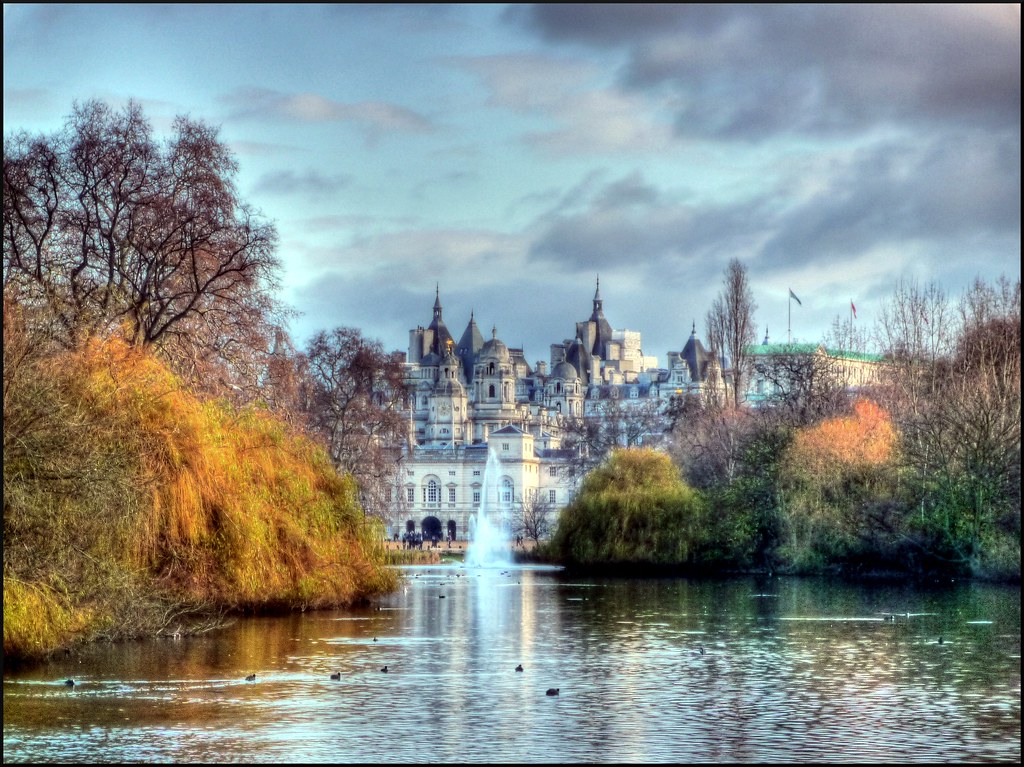
St James's Park Lake, London, England St. James's Park is … Flickr
Book. London City Airport. Downtown London. US$ 96.60. Book. St. James's Park is the oldest Royal Park in London and is located in the heart of the city, near Buckingham Palace.
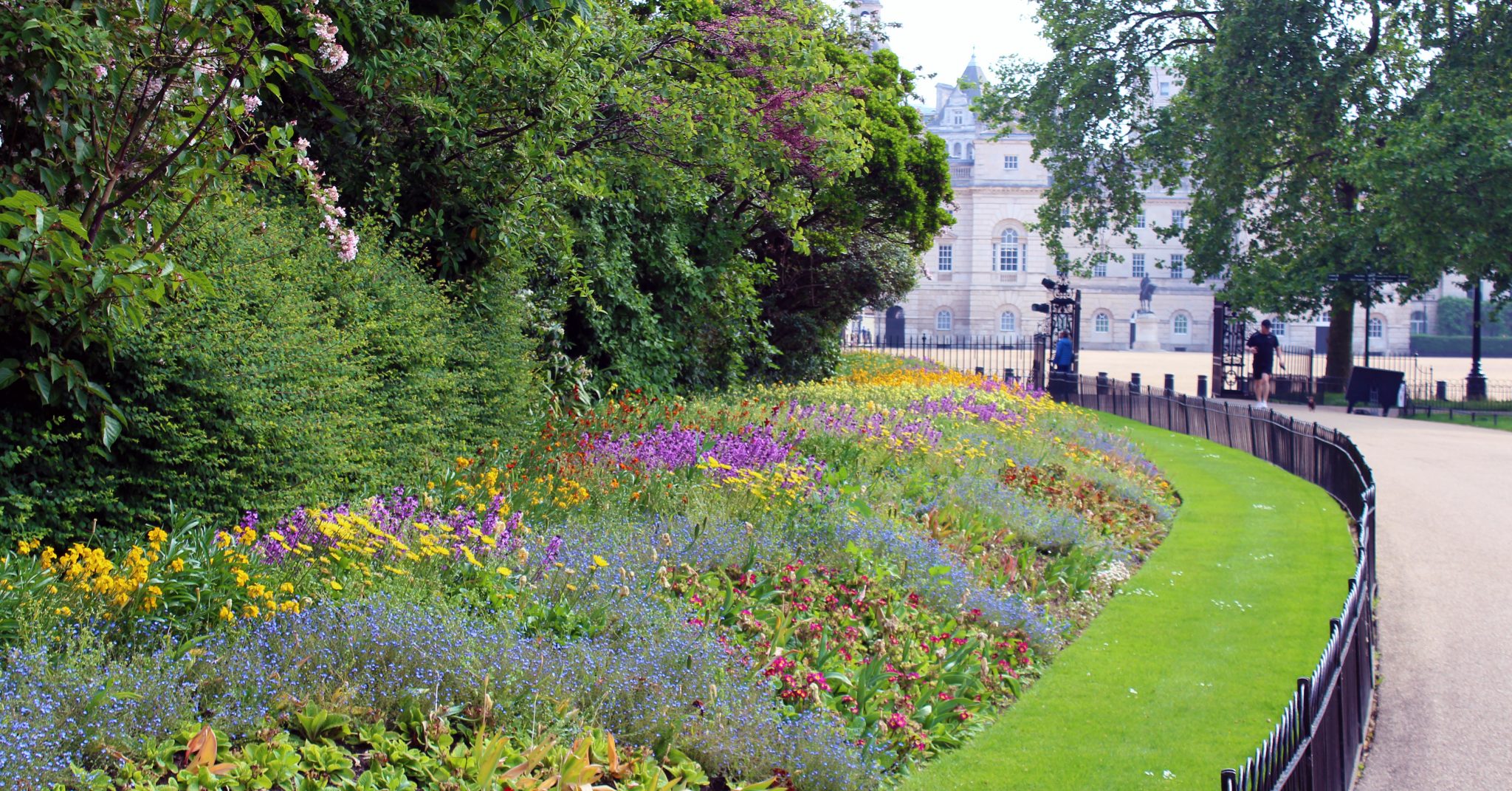
The sights of St James's Park Beautiful London
St. James's Park is well served by a range of different public transport services: Train The closest mainline stations are Charing Cross and Victoria.Charing Cross is served by services from Southeastern and Victoria is served by services from Southern, Southeastern and Gatwick Express.Walking times to the park from both stations is approximately 15 minutes.
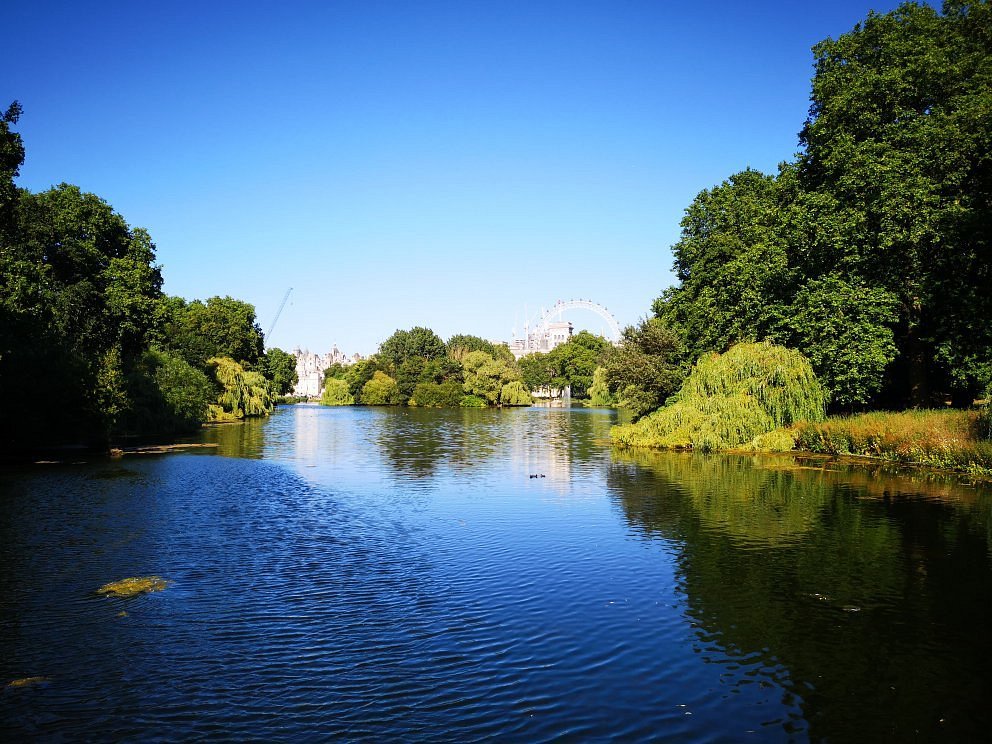
St. James's Park (London) All You Need to Know BEFORE You Go
Other articles where St. James's Park is discussed: Saint James:.avenue called the Mall, is St. James's Park (90 acres [36 hectares]), which is the oldest and most ornamental of the royal parks of central London. Originally a marshland, it was landscaped in an elaborate and formalized manner during the rule of Charles II (1660-85). The eastern end of the…
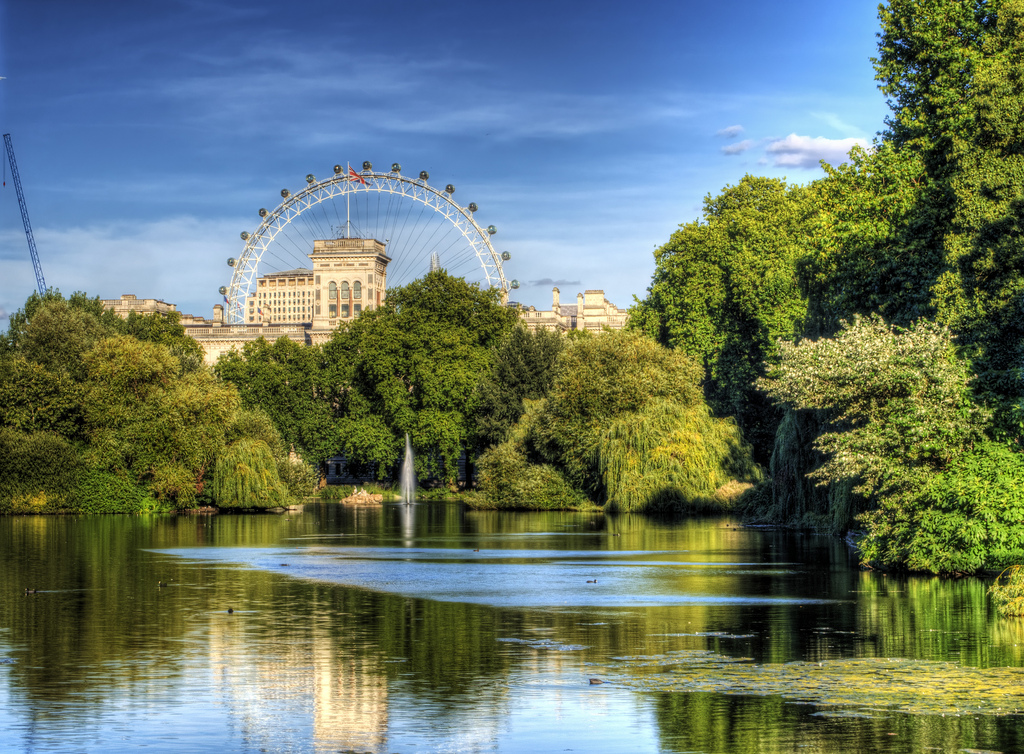
St. James's Park, Central London, United Kingdom
In 1532 Henry purchased an area of marsh bordering on Whitehall to the west, intending to create a deer park. The area was known as St James, after a 13th-century leper hospital on the site that was dedicated to that saint. On one side of the park he built a hunting lodge, which later grew to become St James Palace.

How St James's went from London's 'receptacle for offal and cinders' to
The short-lived pagoda. The Blue Bridge. Photo: Dave Pearce. The bridge which crosses the lake in the park is today known as The Blue Bridge. Its predecessor was a lot more ornate, and was built.

Saint James's Park London Landscape NotesLandscape Notes
Far from it. St. Jame's Park in London covers some 57 acres (23 hectares), right in the very heart of the capital. The park is close to Buckingham Palace in the City of Westminster. St. James's Park is famous for its pelicans. They were introduced to the park in 1664, as a gift from the Russian Ambassador to London, to King Charles II.